As part of Cerebral Palsy Awareness month, Ciara shares her helpful guide to help you through your time at college.
Hello, my name is Ciara McCarthy, and I am a college student with cerebral palsy, autism, and profound hearing loss. For a cerebral palsy month, I compiled tips to help guide you through your time at college as someone with cerebral palsy.
I began at college in the autumn of 2022, and these are things I found helpful in navigating my way through college.
Attend the Open Days of the college you’re going to.
- It can be helpful to familiarise the surroundings and to communicate with lecturers and support staff. Often these open days have useful information about the course you’re attending, and you can ask questions
Get to know student advisors or support staff who will help you through college.
- They can reassure you about your anxieties or support needs. Their job is to support you throughout your course. If you have specific accommodations, they ensure that you have them. The earlier you reach out to them, the quicker your Disabled Student Allowance can be processed.
Ask for a tour around the college.
- This helped me visualise where the nearest lifts and classes were. You can get tours on open days; however, the person that supports you can have a personal one so that you feel more comfortable attending college.
Sit with people in the class.
- As someone bullied for having cerebral palsy, it can be scary talking to new people all over again. Still, I have met incredible friends in my class; sometimes, overcoming your anxieties can help.
Join Societies.
- Societies are a fantastic way to make friends outside of class. There are various interest-based and community-based societies. I joined the disabled students’ network, and it’s so much fun.
Don’t be embarrassed to use mobility aids.
- If they help you, then use them as they are designed to support you. Please don’t focus on anyone else; it’s what supports you and keeps you safe.
Contact your guidance or support teacher if you’re scared about transitioning from secondary school to college. You deserve to have a smooth and safe transition tailored to your needs.
This is my personal experience at college, and it will not apply to everyone, but I hope this gives you some reassurance for your journey to college.
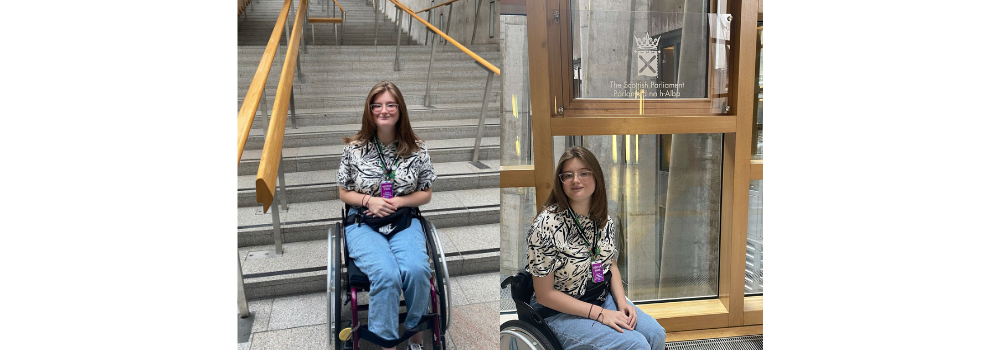
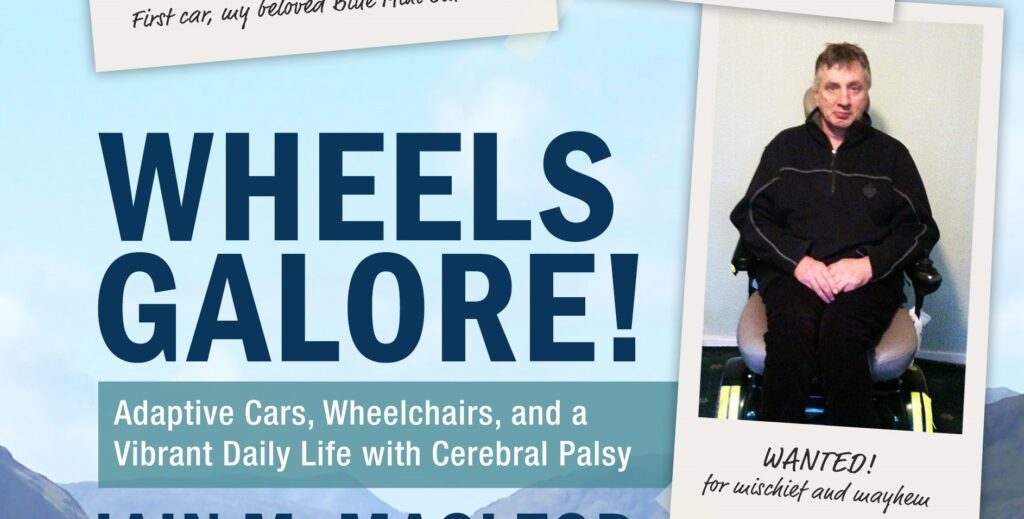
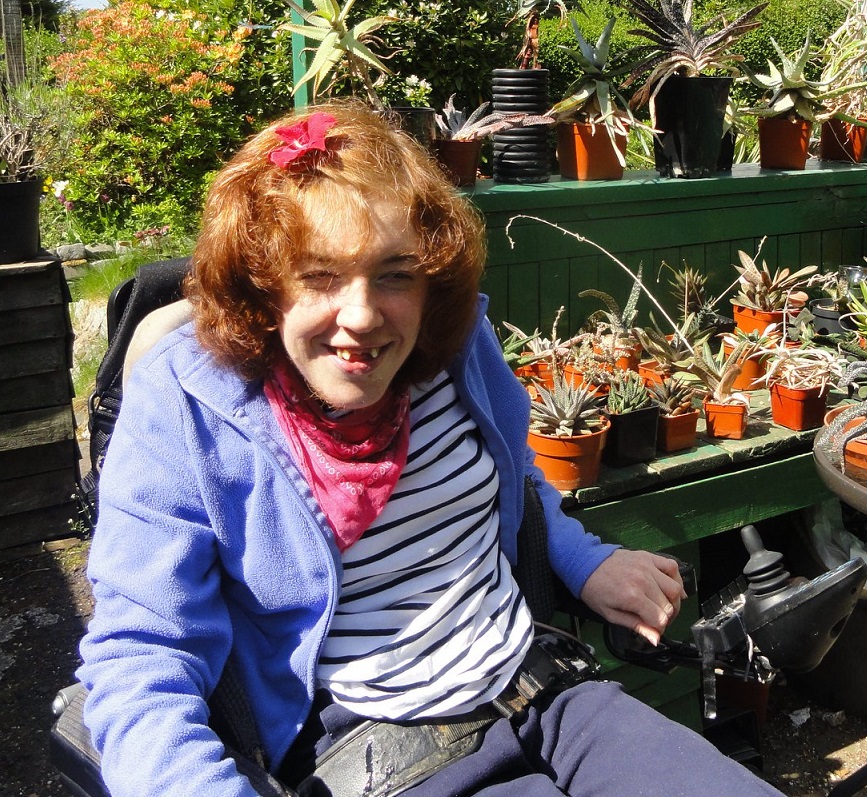
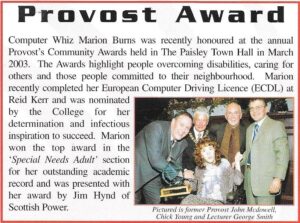
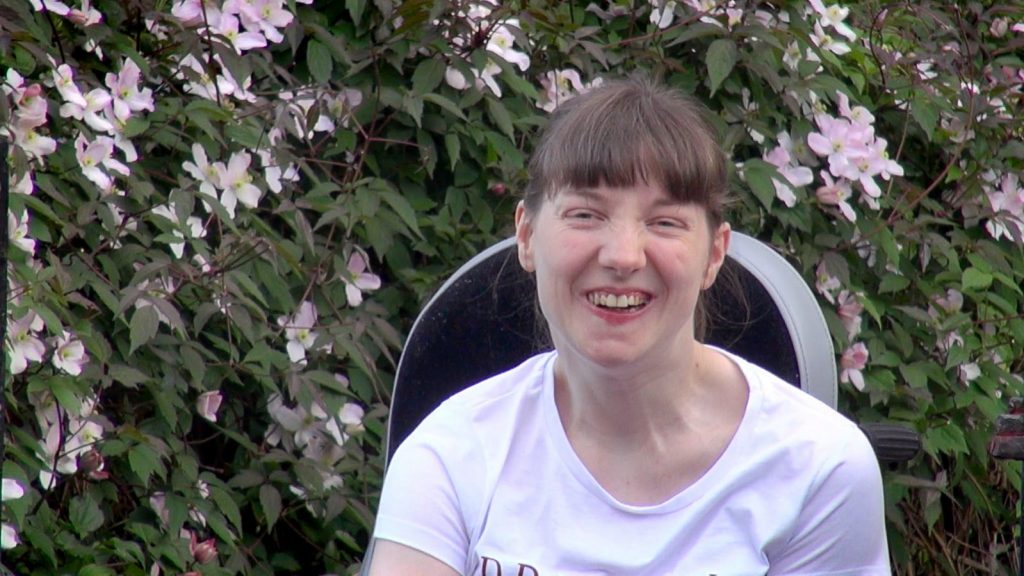
 The school had flexible learning methods and suitable accessible equipment to make things easier for me. I still got taught the same as if I was in a mainstream school, it was just a different set up. The school definitely gave me the best start in life, having the right support in school, I was able to achieve so much. I had a communication device from a very young age, I used it to the best of my ability and it made such a difference throughout my learning experience.
The school had flexible learning methods and suitable accessible equipment to make things easier for me. I still got taught the same as if I was in a mainstream school, it was just a different set up. The school definitely gave me the best start in life, having the right support in school, I was able to achieve so much. I had a communication device from a very young age, I used it to the best of my ability and it made such a difference throughout my learning experience. In 4th year, I studied Modern Studies at standard grade level so I had an exam at the end of it. This was my first exam so I worked so hard to prepare for it- I completed 10 past papers and 9 times out of 10, I passed. I was ready, I felt confident but unfortunately time got the better of me. The Scottish Qualifications Authority (SQA) only gave me 50% extra time which wasn’t enough for my second paper so I ended up failing the exam. It was so disappointing as I knew what I had to do.
In 4th year, I studied Modern Studies at standard grade level so I had an exam at the end of it. This was my first exam so I worked so hard to prepare for it- I completed 10 past papers and 9 times out of 10, I passed. I was ready, I felt confident but unfortunately time got the better of me. The Scottish Qualifications Authority (SQA) only gave me 50% extra time which wasn’t enough for my second paper so I ended up failing the exam. It was so disappointing as I knew what I had to do. Further Education- In 2012, I became a college student at Glasgow Clyde College: Langside Campus. The course was called ‘Transition to Mainstream’ which my school suggested that I go on as I didn’t know what I wanted to do at that point. I liked the course but it wasn’t challenging enough for me, it was aimed at people to learn everyday skills etc. to live independently. I stuck at the course to gain more qualifications and it gave me a great work placement opportunity too.
Further Education- In 2012, I became a college student at Glasgow Clyde College: Langside Campus. The course was called ‘Transition to Mainstream’ which my school suggested that I go on as I didn’t know what I wanted to do at that point. I liked the course but it wasn’t challenging enough for me, it was aimed at people to learn everyday skills etc. to live independently. I stuck at the course to gain more qualifications and it gave me a great work placement opportunity too.